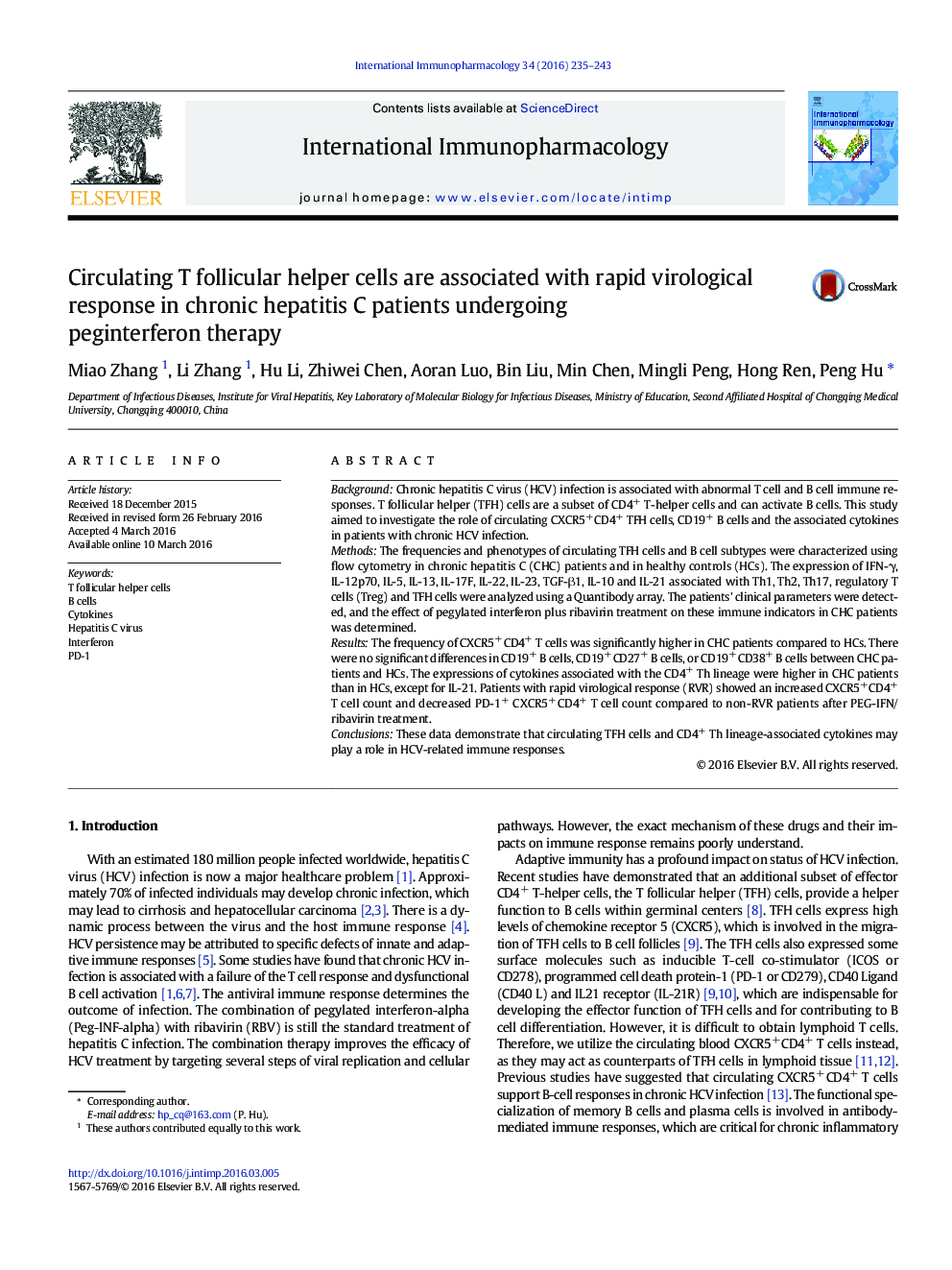| Article ID | Journal | Published Year | Pages | File Type |
|---|---|---|---|---|
| 2540281 | International Immunopharmacology | 2016 | 9 Pages |
•T follicular helper cells and surface molecules (ICOS, PD-1, CD40L, IL21R) were higher in chronic hepatitis C patients.•Memory B cell frequency may just be associated with liver fibrosis.•Plasma levels of Th cell cytokines were higher in CHC, except for IL-21.•A higher frequency of TFH cells existed in rapid virological responders with PEG-IFNα-based therapy.
BackgroundChronic hepatitis C virus (HCV) infection is associated with abnormal T cell and B cell immune responses. T follicular helper (TFH) cells are a subset of CD4+ T-helper cells and can activate B cells. This study aimed to investigate the role of circulating CXCR5+ CD4+ TFH cells, CD19+ B cells and the associated cytokines in patients with chronic HCV infection.MethodsThe frequencies and phenotypes of circulating TFH cells and B cell subtypes were characterized using flow cytometry in chronic hepatitis C (CHC) patients and in healthy controls (HCs). The expression of IFN-γ, IL-12p70, IL-5, IL-13, IL-17F, IL-22, IL-23, TGF-β1, IL-10 and IL-21 associated with Th1, Th2, Th17, regulatory T cells (Treg) and TFH cells were analyzed using a Quantibody array. The patients' clinical parameters were detected, and the effect of pegylated interferon plus ribavirin treatment on these immune indicators in CHC patients was determined.ResultsThe frequency of CXCR5+ CD4+ T cells was significantly higher in CHC patients compared to HCs. There were no significant differences in CD19+ B cells, CD19+ CD27+ B cells, or CD19+ CD38+ B cells between CHC patients and HCs. The expressions of cytokines associated with the CD4+ Th lineage were higher in CHC patients than in HCs, except for IL-21. Patients with rapid virological response (RVR) showed an increased CXCR5+ CD4+ T cell count and decreased PD-1+ CXCR5+ CD4+ T cell count compared to non-RVR patients after PEG-IFN/ribavirin treatment.ConclusionsThese data demonstrate that circulating TFH cells and CD4+ Th lineage-associated cytokines may play a role in HCV-related immune responses.
